For the support of Gaddafi, 30 000 people were driven out of their homes
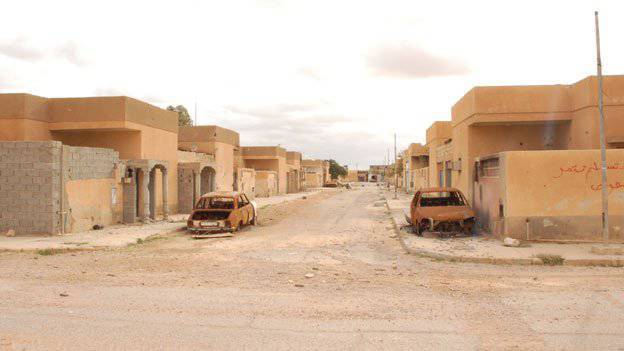
30 000 people living in the North Libyan town were driven out of their homes. This was an act of revenge for their participation in the three-month siege of the city of Misurata. What really happened in the city of Tawerga, were the accusations of cruelty against the inhabitants of the city justified and how would this affect the hopes of national unity?
“No, they will never be able to return ... They caused us too much grief, done terrible things. We cannot forgive them.”
Nadjia Wax, a young woman from Libya’s third largest city, Misurata, talks about the inhabitants of Tawerghi, a town about 50 km (30 miles) to the south.
For three months, from early March to mid-May, Muammar Gadhafi’s forces besieged Misurath. Part of the forces besieged were based in Taverg, and city residents are accused of being implicated in an attempt to suppress the urban uprising. They are also charged with crimes, including murder, rape and sexual torture.
The defenders of Misurata eventually won, fleeing the ruined city. The detachments of the inhabitants of Misurata were part of the forces that flooded the capital Tripoli in August. They also captured and destroyed Gaddafi and one of his sons in late October and put the bodies on display in their city.
In mid-August, between the end of the siege and the assassination of Gaddafi, Misurata forces ousted everyone living in Taverg, a city with a population of 30 thousand. Human rights associations have described this as an act of revenge and collective punishment, which can be considered a crime against humanity.
The predominant population of Taverga - the descendants of black slaves. Mostly poor, they were under the auspices of the Gaddafi regime and were its broad supporters. Some of them supported Gaddafi as the regime fought for its survival.
What happened in Misrata and Taverge revealed one of the mistakes that occurred in Libya. This shows how difficult it is for national reconciliation in some areas. This can be seen as an example of victory in a war that ended with the overthrow of Gaddafi, and harsh justice in relation to certain communities that were on the side of the former regime and were defeated.
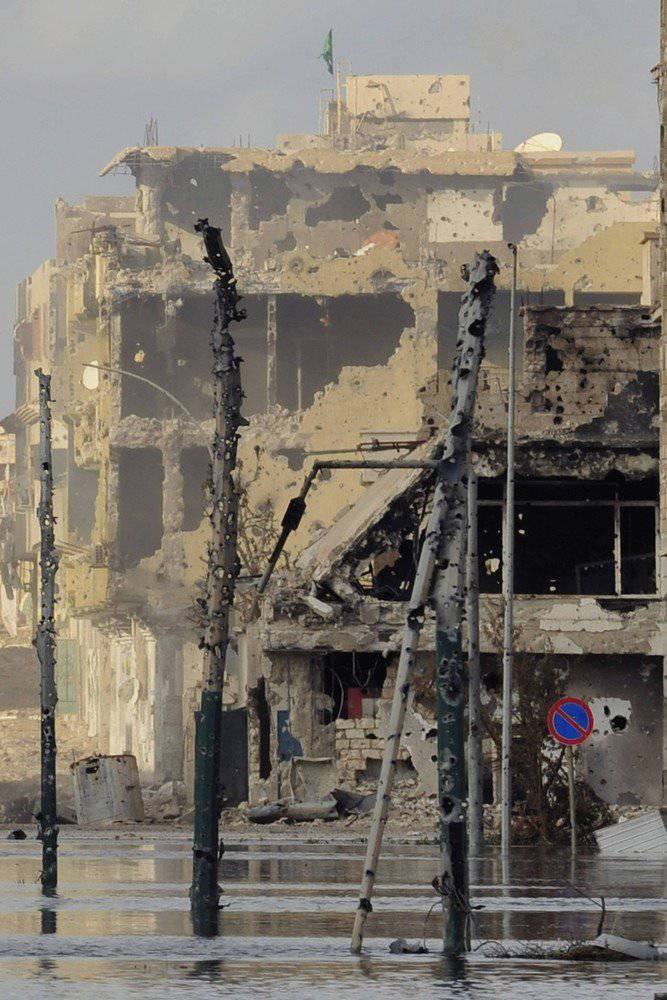
Ghost town
Entering Taverga from the main road, the name of the city was erased from the road sign. Now it is frighteningly quiet, what can not be said about the beautiful bird singing. You can also notice several hiding cats and one skeleton lame dog.
Burned and looted house after house. The property of the people who lived here is scattered, as if in a desperate flight. Somewhere on the buildings, the green flags of the former regime still tremble.
Some of the houses show scars after a heavy bombardment, some are burned to the ground, some are simply thrown. The city without people is empty, not counting the few policemen from Misurata who are preventing the return of citizens.
Those who fled the city are now scattered throughout the country. 15 000 people are in the Hun, in central Libya. Some have moved to Sabha and Benghazi, and more than one thousand are in a refugee camp in Tripoli.
This camp, which is led by the humanitarian organization LibAid (Lebanese Aid), was a construction site, which at the beginning of the uprising was abandoned by foreign builders who lived and worked there. The camp is full of women and children. There are also men, but they are very few and they are kept away from the eyes. Women are ready to talk, but they want to cover their faces.
Umm Boubacar cannot find one of his sons. "They bombed and shot at us, and we had to run. I ran away with my children. I lost a boy, and I don’t know if he is dead or alive. And now we are here, without a future. We are afraid, we need a solution to our problem and we want to go home. "
She says that Misurata militiamen are raiding the camp at night to pick up the young men. They will not see them anymore and will not be heard about them.
Umm Saber says police claim her nephew has confessed to rape a woman from Misurata, but she swears that her nephew does not know the meaning of the word.
"There is no evidence that there were rape. They expelled us because they want our land and houses," she adds.
Children are gathering outside in the courtyard to sing to us goodbye a protest song about their conquest in the new, free Libya.
People in Misrata explain what happened in Taiwan: cleaning up the whole city in terms of rape and sexual torture.
They are not committed to reconciliation or forgiveness. In this conservative society, rape is an unforgivable crime. The victims do not come forward, and therefore there is no way to know how wide the crimes are.
However, authorities in Misurata say that the residents of Tayergi confessed to violence and that they have footage from their mobile phones as evidence.
We were not allowed to see this, but the BBC was allowed to talk to an 40-year-old man who was held by supporters of Gaddafi from Tawergha as a suspect in the insurrection. His teeth were knocked out by the rifle butt.
He says that he has seen a series of sexual assaults, including torture of more than 20 men, on their genitals; a man raping with a stick and women from Tawerghi who served in the armed forces of Gaddafi, who urinated on prisoners prostrated on the ground.
Summing up the evidence of violence and other crimes that were ultimately identified, it seems that the citizens of Tawerghi are collectively accused of crimes committed by several people.
And because the people from Taverga for the most part supported Gaddafi, the police triumphants from Misurata seem to consider them responsible for the much bigger crimes of the former regime committed in his last months.
In Misrata, workers are converting a former state security building to a prison, floor by floor. The conditions here seem to be good, although the building is crowded.
The prison is clean, well organized. Medicine Sans Frontiers (MSF), a humanitarian organization, organizes the work of a small hospital, pharmacy and spiritual mentorship in prison.
It contains about 60 men from Tawerghi. The warden invites volunteers to talk to us. He insists that they can speak freely and there will be no consequences.
Allegations of torture
The word takes Riyadh. He insists that he was not involved in violent actions, although he believes that such things really happened. He says that no one has yet investigated his case or accused him of anything. The prison is not a bad place to be in it, he says, since he would be in great danger from the outside. Riyad hopes that his day will come in court, and he will clear his name.
He convinces his uncle to come forward to talk with us. Osama is much more talkative, but shows what he is talking about: he received scars from beatings with a heavy electric cable from police officers in Misrata after he was stopped at a checkpoint.
"I am innocent and want to be tried, but it takes a lot of time. People who have committed crimes should be punished, but not me," says Osama. “I have to remain a refugee. This is the situation. Now we cannot go home, these people will not let us in.”
This is to a large extent a point of view on the situation of Nadjia Wax. Najiya was supposed to leave home when a rocket destroyed him during the siege of Misurata. In the war, she lost four relatives.
We met her at school in the outskirts of Misurata, where she works in a sewing workshop. Psychologists from MSF are also here, helping women and girls cope with the trauma of the siege they suffered.
Najija was not directly subjected to any violence and torture, allegedly carried out by Tverghi people. However, she has no doubt that torture took place.
One of the teachers working at the school told me that she could not even tell herself whether there was violence or not. “Everyone talks about it, but no one really talks about it. It’s too embarrassing,” she explains.
Some of the women lost their husbands, sons or brothers during the clashes. They are offered such training so that they can support themselves.
Children's drawings on the wall are teasing Gaddafi and his family. Little girls dance and sing songs, celebrating victory, courage and martyrdom, and above all - martyrdom. Photos of deceased relatives hang on their neck.
Of course, the inhabitants of Misurata suffered terribly during the siege - destruction from bombing everywhere.
Mohammad Bashir al-Shenbah, the man who founded the Museum of Martyrdom on one of the main streets in the city, says that more than 1 200 people from Misurata were killed in the fight. Hundreds of people are still missing, missing.
His museum is a kind of gallery. Photos of those who died, covered several walls. There are photos of people killed during the purges carried out in the city by the Gaddafi regime in the 80s. In front of the museum you can wander among the piles of various projectiles, bullets, heavy weapons and pomegranates that were used against the city. The golden fist that once stood in the Gaddafi camp in Tripoli is also located here. This is a trophy to which families come to take pictures.
Anyone who died while participating in the overthrow of Gaddafi is a martyr in today's Libya - the argument about martyrdom almost suffocates. Each speech opens with prayers for martyrs, television stations are saturated with songs that thank the martyrs for their sacrifice. The central square in Tripoli was renamed again to Martyrs' Square. People from Misurata took this language with all their hearts.
In the policy of Libya, Misurath makes a difficult deal. His police continue to hold territory and weapons captured in battle. Their military successes and their losses in the war make them feel the right to share power.
Officials in Tripoli said they would investigate whether any fighters from Misurata committed any actions that violated the law. But this does not mean that any of the detainees is responsible for the events in Tawerge.
It is alleged that the abuse and harassment of people who were not allowed to return to their homes continue.
The striking moment in Libya in the period after Gaddafi is that regional or provincial centers - Misrata, Benghazi and Zintan, for example, dictate to the political center - Tripoli, which is the capital and government residence.
In the war, many cities and communes were severely damaged. Taverga and the hometown of Gaddafi Sirte, which was completely destroyed by heavy shelling, are just two examples.
But in the new Libya they have no voice, since they were on the side of the losers.
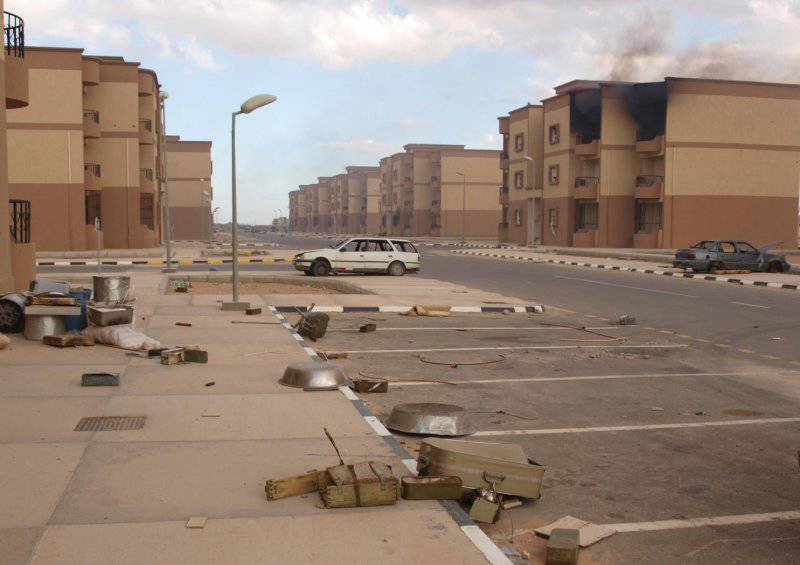
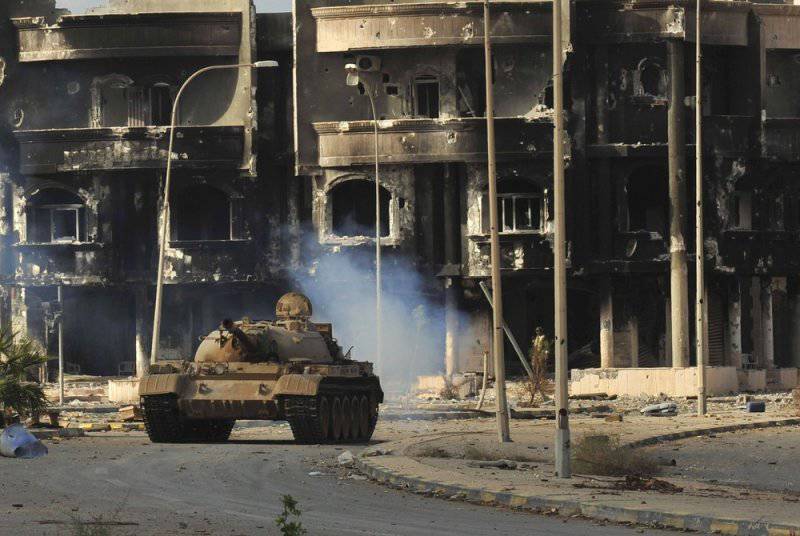
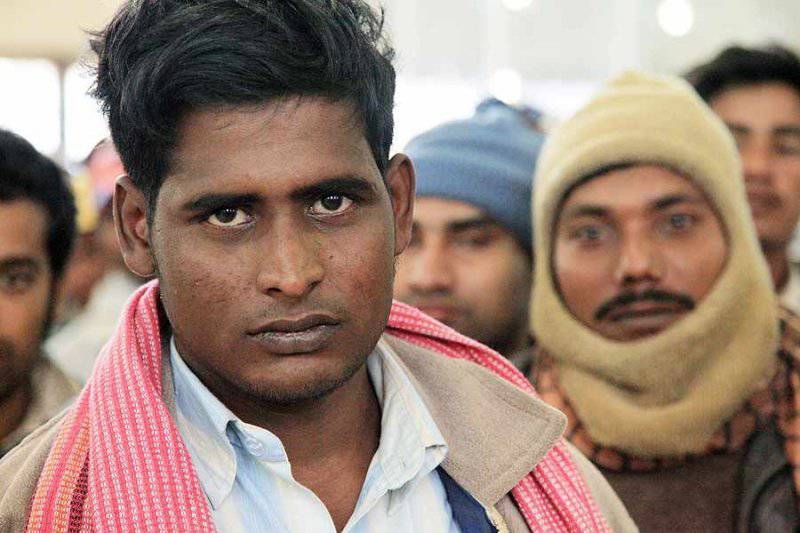
Information